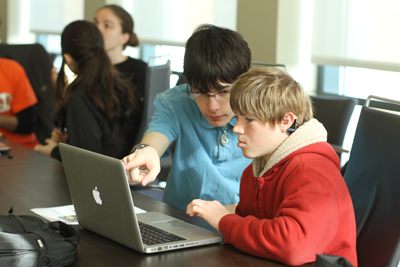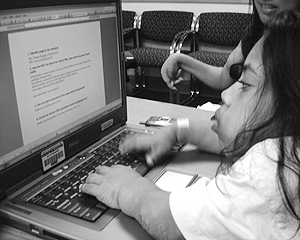Video Content and Universal Design (AccessComputing News Feb 2009)
It is easier than ever to produce and distribute video content via DVD or the web. As an educator, how do you ensure that the videos you create are accessible to all students?
It is easier than ever to produce and distribute video content via DVD or the web. As an educator, how do you ensure that the videos you create are accessible to all students?

AccessComputing staff and participants developed an Accessibility Checklist to guide faculty and administrators in making their computing departments more accessible. The checklist is based on the concept of universal design, defined by Ron Mace of the Center for Universal Design as, "the design of products and environments to be usable by all people, to the greatest extent possible, without the need for adaptation or specialized design."

Students with disabilities:
Educators & employers:
Led by the Department of Computer Science & Engineering and DO-IT (Disabilities, Opportunities, Internetworking, and Technology) at the University of Washington, AccessComputing is supported by the National Science Foundation (Grant No. CNS-0540615, CNS-0837508, and CNS-1042260). Any opinions, findings, and conclusions or recommendations expressed in this material are those of the authors and do not necessarily reflect the views of the National Science Foundation.
The UW hosted the AccessComputing Leadership Institute in Seattle in fall 2008. The event brought together more than twenty-five leaders from around the country to broaden participation in computing for people with disabilities. The goals of the institute were threefold:
Since February 2006, AccessComputing has contributed funds to support computing-related activities, training, and experiential learning opportunities nationwide. Individuals can seek funding to support:
The UW Department of Computer Science & Engineering's WebAnywhere project was a recipient of the Andrew W. Mellon Foundation Award for Technology Collaboration (MATC). As Vint Cerf presented the award at the Coalition for Networked Information fall meeting he stated:
Richard Ladner, UW Department of Computer Science & Engineering professor and AccessComputing Co-Director, was one of fifteen recipients of the 2008 Purpose Prize, an award for social innovators over sixty years of age. Ladner has shifted the focus of his research from computer science theory to developing better technologies for people with disabilities.